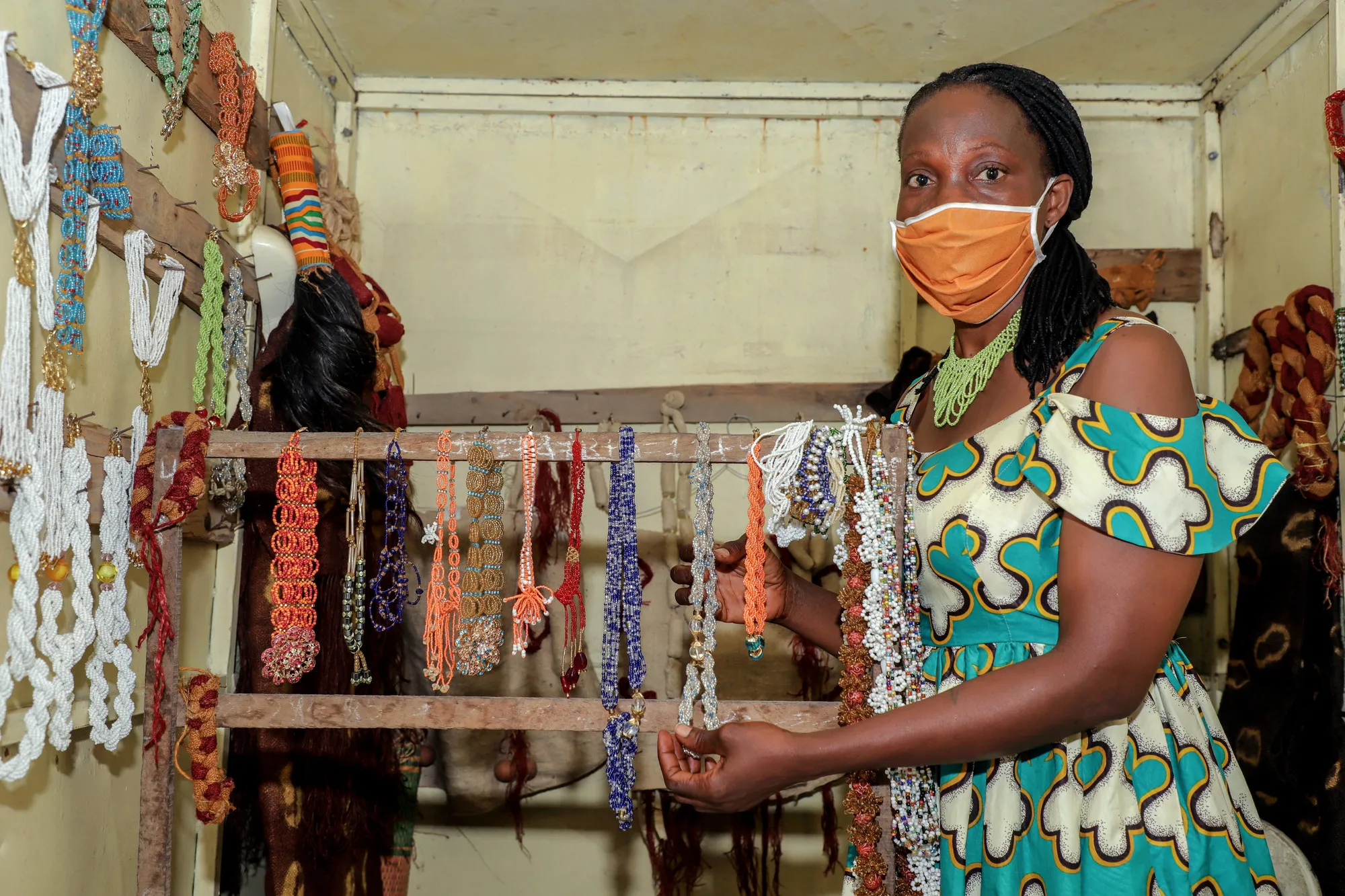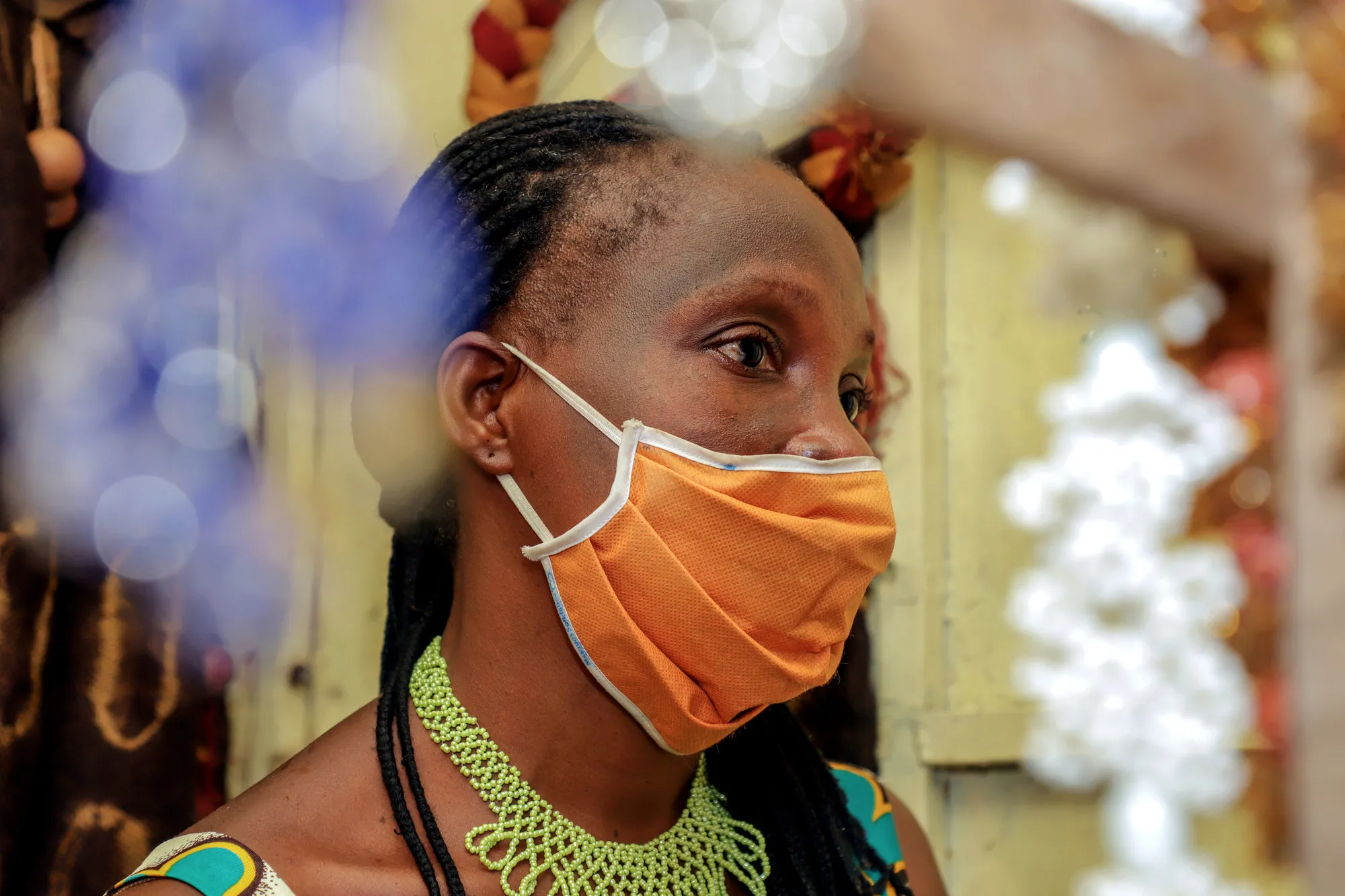Clarisse Kouame, a pearl craftswoman and mother of four children, lost her job when she had to close her store in Cote d’Ivoire because of COVID-19. She had been a pearl artisan for five years, starting her work at home before acquiring her first store. She said everything was fine until the COVID-19 pandemic.
“But I did not stay there waiting without doing anything. With my association of women, we did a training on producing oyster mushrooms. … I told myself if in addition to crafts I could have another skill, it will be of great use especially in the future. Even if today I have no financial means, later I intend to make the marketing of mushrooms another source of income. …I still have hope. This is what gives me the strength to be there every day.”
The International Labour Organization estimated that by June 30, COVID-19 eliminated 277 billion hours of paid work, the equivalent of 400 million full-time jobs. Unlike previous economic crises, those job losses are hitting women the hardest, since women dominate the service industries that are most affected by COVID-19 restrictions. CARE’s research confirms this. In Lebanon, 49% of women have lost jobs, compared to 21% of men. Even in the formal sector, women are losing out faster than men. In the Philippines, women in formal employment are 17% more likely to work fewer hours than their male counterparts since the outbreak of the virus.
All is not lost. In communities around the world, entrepreneurs like Clarisse, women in savings group, CARE’s staff, and our local partners, are coming up with solutions to help people find jobs, create jobs, and cope with unemployment.


